New version of Eighteen Oddities in Yunnan (2)
4. Elephants frequent villages for food
For villages living near the Xishuangbanna nature reserve, it is common for them to see in the morning that their homes have been ravaged by wild elephants overnight.
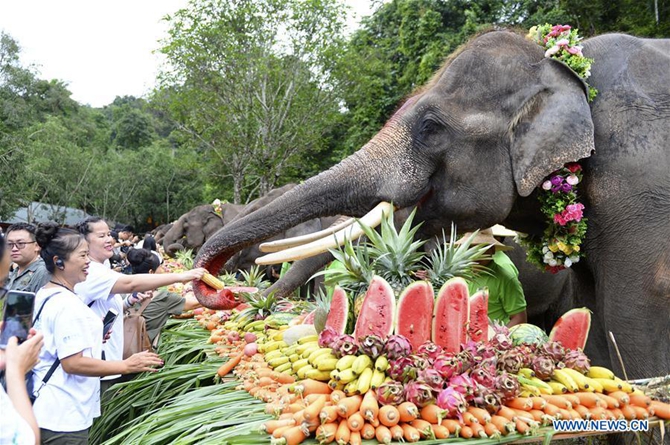
Villages in Xiangyanqing have been relocated out of the reserve to somewhere near the highway, but elephants still visit their new houses at times, according to Feng Guanglin, a native villager.
"Now the government has purchased us the public liability insurance. If our crops are eaten by elephants, we’ll call local forest authority and the insurance company will come to compensate us," said another villager Feng Guangrong.
5. Local specialties sell well via e-commerce
Thanks to the e-commerce platforms in Nansan Industrial Park of Zhenkang County, local specialties such as tea and organic food materials are sold to consumers in east China, Russia and other neighboring countries.

"Now I sell my tea online, sitting in the shop or at home. And the tea can be sold to all over the country." Tea merchant Li Mengyuan used to be on business trips most of a year, but now she has a daily routine.
Through the online and offline business model, the monthly income of my company has also increased from 500,000 yuan to 900,000 yuan, said Zhang Bixiao, an organic-food dealer.
6. Cranes enjoy take-out food in winter
Located in the west of Zhaotong City, Dashanbao has been a major habitat for black-necked cranes to winter, with the number on the rise these years.

To supply the migrant birds enough food, the Dashanbao Nature Reserve Administration has grown eight hectares of potatoes, turnip and buckwheat, all of which are not harvested and left for the black-necked cranes.
Moreover, bird lovers in neighboring areas would bring corn for the black-necked cranes, feeding them by hand year after year.
7. Foreigners settle in old town
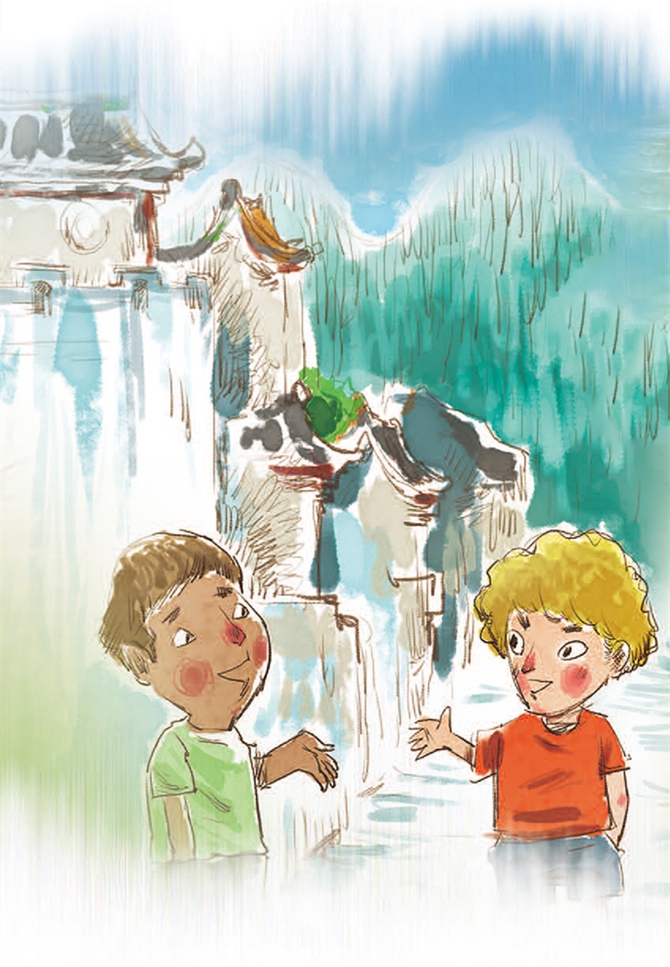
"We like this city a lot. Since we first came here in 2004, we haven’t thought of leaving. For more than 10 years, we’ve bettered off and felt happier." At No. 70, Foreigners’ Street, Dali Ancient City, Myanmar merchant Xu Jiping and his wife run a jade store and live happily in Dali these years.
8. Dounan flowers are sold worldwide
It took more than 30 years for Dounan to grow from an obscure village to the largest fresh-cut flower trading market in Asia.
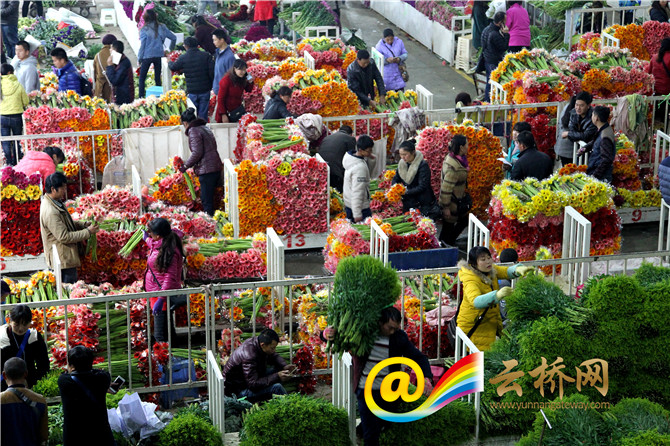
Thirty years ago, Hua Mingsheng, a villager from Dounan made a bold attempt: he set aside 0.1 mu of his land to grow gladiola flowers. “A friend of mine told me that a bunch of gladiola could be sold for 30 cents, and my interest was aroused,” Hua recalled.
At that time, his family mainly grew vegetables, which were 5 to 10 cents per kilo. That year, the gladioli brought in 160 yuan, so he decided to use all his land to grow flowers. Soon, every household in Dounan began to plant flowers.
In 2001, the Shanghai Grand World Guinness Headquarters recognized Dounan Flower Market as the largest fresh-cut flower trading market in China and even in Asia.
Many farmers in the area benefited from growing flowers. They sell flowers, act as intermediaries and are engaged in logistics and packaging. In 2017, the village achieved a total income of 244 million yuan and a per capita net income of 16,300 yuan.
9. Guozhuang is passed down for generations
In Benzilan Township, Deqin County, the Guozhuang dance is a national-level intangible cultural heritage that boasts a history of 1,500 years.
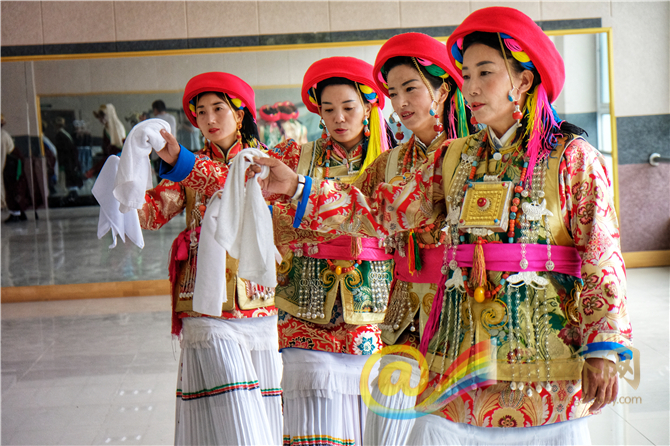
"We didn't have the time and mood to learn Guozhuang when food was scarce. Having been better off later in the national reform and opening up, more Tibetan villagers began to practice Guozhuang," said Xu Guilian, a national-level inheritor aged 76.
Now, Xu Guilian is training 30 youngsters though she can no longer dance. Xu is happy that the students can pass down the Guozhuang dance to future generations.
10. Hani feast is set along the street
The Hani people mainly live in compact communities in the Ailao Mountains along the Honghe River in south Yunnan. Traditionally, Hani people hold feasts along the longest street in their villages on wedding occasions or during the New Year.
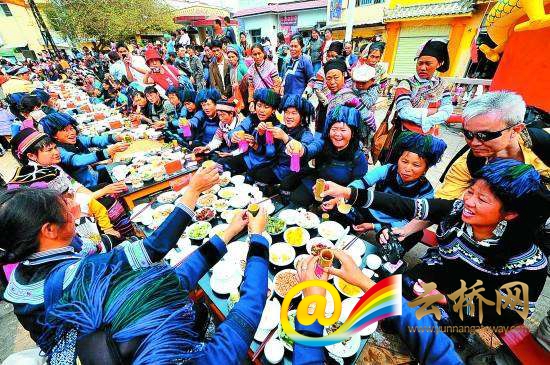
To prepare for the banquet, every household get up early in the morning, cook the best dishes as they can and bring them in bamboo baskets to the banquet which is so large that many tables are laid end to end along the street like a colorful dragon.
In recent years, as Yuanyang gets popular among tourists because of the the UNESCO world cultural heritage—Honghe Hani Terraced Fields, some foreigners also come to take part in the festival and experience the unique Hani culture.
(To be continued...)
Source: Yunnan Daily; trans-editing by Wang Shixue